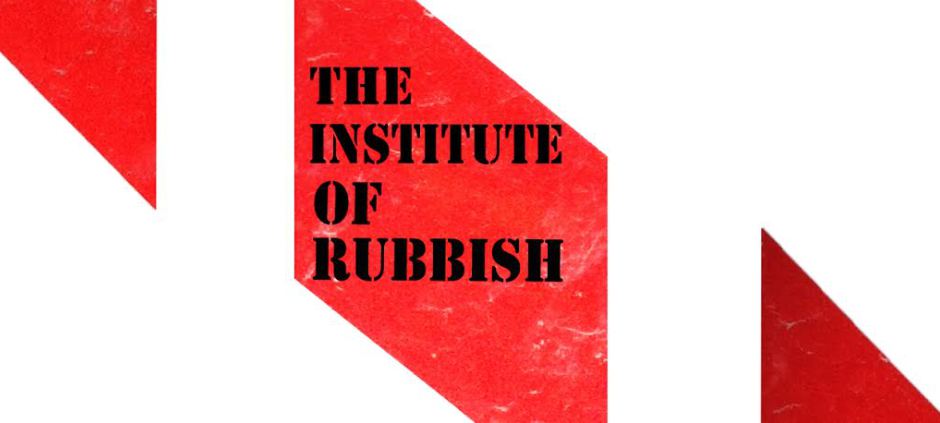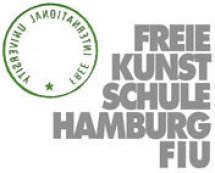On 15th of October 2015, the documentary theatre program “The Institute of Rubbish” will open at the Goethe Institute. Curated by German dicrector Georg Genoux, the program is part of the Instiute’s new arts initiative “Production Spaces.”
Baba Pepi, a Film Installation. Opening on 15th October 2015 at 17.00 at the Goethe Institute
Uncle Tseni. Premiere on 15th of October at 19.00 at the Goethe Institute
To buy a story. Premiere on 20th of October at 19.00 at the Goethe Institute
Baba Pepi, a Film Installation. Opening on 15th October 2015 at 17.00 at the Goethe Institute
The program will start with the film installation "Baba Pepi" which is part of a broader project entitled "About the Old People". "Baba Pepi" is a collaboration between Bulgarian author and actress Irina Andreeva and director Georg Genoux. Its focus is on an 85 year old woman who has lived alone for many years in the Rhodopy Mountains.
In the film installation Baba Pepi and Irina Andreeva work together to explore Baba Pepi’s experiences and her biography. Baba Pepi has witnessed many important periods in Bulgarian history: the time of Tsar Boris III, the communist era, and the start of a new age that we call democracy.
"Baba Pepi" premiered as a documentary theatre piece on 26th of May 2015 at the Red House Center for Culture and Debate in Sofia. At this performance, Baba Pepi performed on stage and shared her 85 years experience of life in Bulgaria. The film installation is a synthesis of of footage from visits and conversations that took place in Baba Pepi’s home and her expierience on the stage in Sofia.
The installation runs from 16th of October to 31st of October daily from 10.00 too 18.00 at the Goethe Institute.
Uncle Tseni. Premiere on 15th of October at 19.00 at the Goethe Institute
"Uncle Tseni" is the second performance created under the umbrella project "About the Old People". It was developed by the young Bulgarian director Margarita Macheva whose debut in Sofia was in 2015. In collaboration with curator Georg Genoux Macheva premeired the documentary performance “Next to You” – a piece about domestic violence that was developed with theatre Replika in Sofia.
"Uncle Tseni" reviews the life of a 90 year old ex-officer of the Bulgarien Ministry of Culture.
Together onstage with actor Tony Karabashev, Uncle Tseni will share his thoughts about the many years he has spent attempting to organize his life and his duty to work for society. He will disccuss his desire to support other people and also the “degeneration of politeness” he observes in the new generation. This “old man” asks important questions about social responsibility in the time and space of post-communism.
To buy a story. Premiere on 20th of October at 19.00 at the Goethe Institute
Directing debut of the young Bulgarian theatre artist Boris Zafirov with actor Blagoi Boichev
Boris Zafirov: "The project ‘To buy a story’ is an artistic reaction of the inhuman state of politics that run against a person as an independent human being. The last few decades we' ve become withneses to and also victims of the increasingly obvious shift of culture into corporate patterns. Now the unification of the human as a unique Individual has no value. Emotions and the perceptions are no longer a priority. The new market strategies don't allow you to act for yourself, your thoughts and actions are already part of a system. The only way to preserve your humanity is to protect your own story.".
The Institute of Rubbish understands theatre as a possibility to investigate important social questions and treat them by using theatre language. In these pojects the process of creating is a public event and the steps of developement are visible in the performances.
Georg Genoux is the driving force of this process and the connected documentary theatre projects. He works as a director and curator in Ukraine, Russia, Bulgaria and Germany.
In collaboration with the Goethe Institute and the actors of Theatre Replika, Genoux developed the documentary performance "We are the Rubbish from Eastern Europe", which premiered in 2014 and also toured that same year to the Maxim Gorki Theater in Berlin. “We Are the Rubbish From Eastern Europe” will also be appearing at GRAD gallery in London in November 2015. In 2014 the President of the Republic of Bulgaria Rossen Plevneliev presented the "Stoyan Kambarev" Award for Contemporary Art to Replika Theatre for their projects with director Georg Genoux.
In 2015, Georg Genoux created “About the Old People” together with a group of young Bulgarian playwrights and actors.
The actors and playwrights at the heart of this project take care of the old people in their everyday lives. They concern themselves with the problems of the elderly, which are mostly very different. As they continue their work, they will develop a plan of how best to take car of particualr old people in Bulgaria and develop an approach that can be used more widely as well. These actors are no longer actors in the traditional sense. They become ambassadors for old people’s biographies, for people who have witness the changes of the last 80 years. These are people who have seen how Bulgraian history has developed and society has changed throught the previous century. They have a lot of experience to share about their private stories that offer context to the time we live in now. They know how society was built.
This diary will also represent a meeting point of the old people and their pasts, to reflect on their own biography, to remember what they’ve already forgotten.
It’s a “Memory Drama” about personal life stories and the history of Bulgaria: http://oldpeople.bg/
The Goethe Institute is offering this and other experimental theatre and dance projects a free space for their developement. This program is called "Production Spaces" and organizes workshopes and performances. Also ideas, perspectives and topic of german activist are creating this space.
http://www.goethe.de/ins/bg/de/sof.html
The Institute of Rubbish is a collection of interdisciplinary projects. It is a creative movement that is independent from the Bulgarian state and the Bulgarian system of state-sponsored theatre. It is, in part, an expression of the creators’ opposition to a system built on humiliation and corruption. It is a political project that speaks out against these conditions.
Theatre is, first and foremost, a social institution meant to support contemporary culture, education, and civic engagement. State theatre’s also bear an important responsibility as recipients of Bulgarian tax revenue. To us, theatre is not a space for the privileged, it is a space in which artists should respond to a society’s questions and needs.
In our fight to build this kind of theatre we are working primarily with documentary theatre, interactive events, interdisciplinary projects, online outreach, and the creation of exhibitions. The actors in this project are real ACTORS because they do not simply perform onstage, they interact with reality.
The Institute of Rubbish is a collaborative project co-created by Irina Andreeva and Georg Genoux. It grew out of our work on the documentary theatre project We Are the Rubbish from Eastern Europe at Replika Theatre in Sofia.
"It is heatre about people who aren’t treated like human beings, those the government and society treat like Rubbish. We also find aesthetic beauty in the idea of Rubbish. At a time when a wealthy society is transforming life into Rubbish, we are using all our creativity to turn Rubbish into life.
Many things can be thought of as Rubbish: food, words, people.
We will work exclusively with Rubbish, bringing it into a conscious space.
Every element of our project will be built out of Rubbish. We won’t try to simulate reality onstage. We will bring the reality of the HERE and NOW into the performance space through our exclusive use of Rubbish.
Ours is an ecological theatre that uses those things that are disposed of by others. By placing these things in a new context, we give them new meaning.
The Institute of Rubbish confronts our day to day reality whereas the world in which we live becomes increasingly virtual and unreal.
Our primary interest is to care for people in a way that the government does not. The contemporary Bulgarian government is a false theatre that present a ‘false democracy’. This is why we can see this exchange in how organizations are meant to function. While the government is otherwise occupied with their performance of stealing the tax money of Bulgarian citizens, our theatre will tend to the needs of the people by organizing projects that create and support future possibilities.
Ours is a project about the biographies and identities of people in the post-Soviet space, about the history of Bulgaria and of Europe. Often times, this history is treated like Rubbish with no consideration of the fact that both Bulgaria and Europe are suffering from the trauma of their pasts. We want to work through this trauma.
The institute of Rubbish is a space for artists of any age who want to participate in the development of alternatives. We are open to collaboration with other arts organizations, with the State, and with State Theatres who are also committed to working together in an effort to generate new forms, concepts, and perspectives in contemporary Bulgarian theatre. We also collaborate with artists internationally to develop new ideas through exchange."
Curator of the Institute of Rubbish: Georg Genoux.
Participators of the project: Irina Andreeva, Dorothea Belcheva, Lilly Dzhagarova, Boris Zafirov, Kris Sharkov, Margaritta Matsheva, Toni Karabashev, Blagoi Boitchev, Boryana Peneeva, Milko Yovchev, Krasimira Kusmanova, Ina Georgiva, Natalya Vorozhbyt (Ukraine), Maryna Vroda (Ukraine), Josephine de Weck (Switzerland), Molly Flynn (America), Michal Kmiecik (Poland), Talgat Batalov (Russia), Sasha Davydova (Austria).
Collaboration by The Institute of Rubbish,Goethe Institute Bulgaria, Replika Theatre Sofia, Democracy.doc, Interdisciplinary laboratory NEDRAma and the Redhouse Center for Culture and Debate
The Institute of Rubbish was founded 02.04 is supported by Democracy.doc (www.democracydoc.com)
Projects by the Institute of Rubbish:
About the old people, an interactive diary by Georg Genoux, premieres on 26th of May at the NEDRAma festival/laboratory (Redhouse Center for Culture and Debate) in Sofia.
To buy a story, a documentary project by Boris Zafirov, premieres on the 28th of May at the NEDRAma festival/laboratory (Redhouse Center for Culture and Debate) in Sofia.
Do you listen to the driver?, an interactive installation by Josephine de Weck and Irina Andreeva, premieres on 12th of June at the NEDRAma festival/laboratory (Redhouse Center for Culture and Debate) in Sofia and on 28th of June, 02th and 4th of July 2015 at the Festival Belluard Bollwerk International in Fribourg (Switzerland).
Next To You, documentary project by Margarita Macheva about domestic violence at Replika Theatre in Sofia.
Upcoming Projects:
Face of a Foreigner, an installation about Dimiter Gotscheff by Kris Sharkov, Dessy Gavrilova and Georg Genoux.
Fichtenstrasse.Prozess, Documentary project by Irina Andreeva



